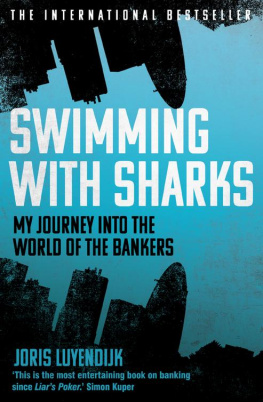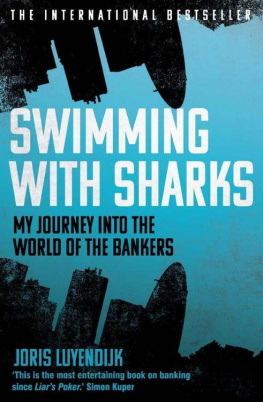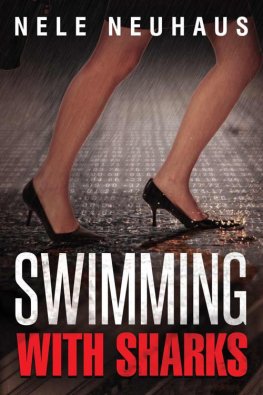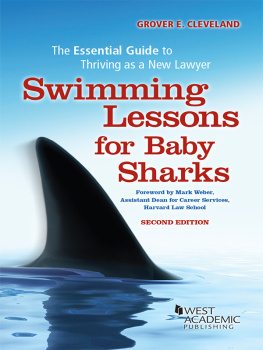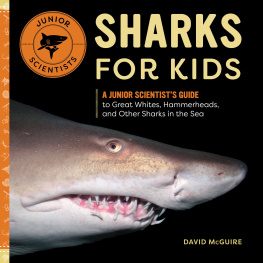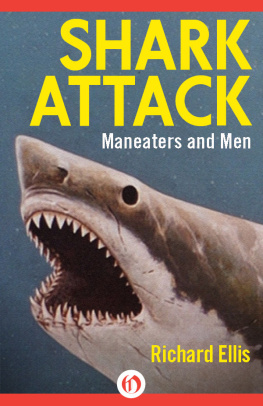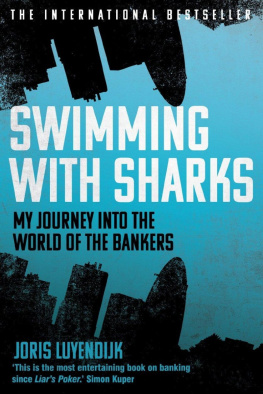Luyendijk - Swimming with Sharks
Here you can read online Luyendijk - Swimming with Sharks full text of the book (entire story) in english for free. Download pdf and epub, get meaning, cover and reviews about this ebook. City: London, year: 2015, publisher: Guardian Faber Publishing, genre: Art. Description of the work, (preface) as well as reviews are available. Best literature library LitArk.com created for fans of good reading and offers a wide selection of genres:
Romance novel
Science fiction
Adventure
Detective
Science
History
Home and family
Prose
Art
Politics
Computer
Non-fiction
Religion
Business
Children
Humor
Choose a favorite category and find really read worthwhile books. Enjoy immersion in the world of imagination, feel the emotions of the characters or learn something new for yourself, make an fascinating discovery.
Swimming with Sharks: summary, description and annotation
We offer to read an annotation, description, summary or preface (depends on what the author of the book "Swimming with Sharks" wrote himself). If you haven't found the necessary information about the book — write in the comments, we will try to find it.
Swimming with Sharks — read online for free the complete book (whole text) full work
Below is the text of the book, divided by pages. System saving the place of the last page read, allows you to conveniently read the book "Swimming with Sharks" online for free, without having to search again every time where you left off. Put a bookmark, and you can go to the page where you finished reading at any time.
Font size:
Interval:
Bookmark:

For the late Gerd Baumann,
who taught me that curiosity will do
The real conspiracy in the financial sector is the sound of silence
Philip Augar, The Greed Merchants, 2005
Youre on a plane. The seatbelt signs have been switched off, youve just been given your drink and now youre trying to decide between the in-flight entertainment and your book. The man next to you is quietly sipping his whiskey, while you gaze absently through the window at the sun and the clouds. Suddenly you see a gigantic flash of fire coming out of one of the engines. You call the flight attendant. Yes, she says, there were some technical difficulties but its all under control. She looks so composed and confident that you almost believe her. But you get up, unable to contain your alarm. First the relaxed flight attendant and then an officious cabin manager try to stop you as you make your way towards the front of the plane. Sir, please go back to your seat. You push them aside, grab the cockpit door, manage to open it and there is nobody there.
Over the past few years I have spoken to around 200 people who work or have recently worked in the financial district of London. Their stories are very different but if I were to summarise them in one image, it would be that empty cockpit.

This project started on a beautifully sunny day in May 2011 when Alan Rusbridger, then editor of the Guardian, invited me to his charmingly chaotic office opposite St Pancras International station in London. I had first met Rusbridger at a journalism conference in my home city of Amsterdam. We had talked about why many people seem to have so little interest in issues that directly affect their interests. Is it indifference and apathy, or have many subjects simply become too complicated for outsiders to understand? To find out, I had launched an experiment for a Dutch newspaper. I had taken an important, complicated and apparently boring issue that I knew nothing about sustainable transport and asked a beginners question: are electric cars a good idea? I had put this to an insider, whose answers led to new questions, which prompted interviews with other insiders and so on until a sort of learning curve of articles and stories had come about. Insiders were happy to make time while readers seemed to appreciate it when you started from zero.
Rusbridger had listened to all this with typically English politeness. I thought nothing more of it until months later I found myself in his sunlit office and he asked if I wanted to do such a learning curve for the Guardian. Only not about electric cars. He pointed in the direction of the City and said that we were literally a stones throw away from the place that only a few years ago had seen the biggest financial panic since the 1930s. Billions and billions had been spent to bail out the industry yet nobody had gone to prison. Indeed, a few years on, the City seemed to be behaving more and more as if it were business as usual again. So, how about a blog on the financial sector?
Behind him I could see the Regents Canal glittering in the spring sunshine and a Eurostar train speeding towards Brussels or Paris. Alongside the New York Times, the Guardian is the biggest online quality newspaper in the world. Insiders would surely make time for such a prestigious newspaper, wouldnt they? I understood as little of the world of finance as the average reader and this was a perfect example of an issue with a huge gap between the public interest and the interest of the public. Tell someone their money is not safe and you have their full attention; say the words financial reforms and people switch off.
I eagerly assented, thanking Rusbridger for the opportunity. How was I supposed to know that the English use that stiff upper lip of theirs to suppress enthusiasm as well as negative emotions?
So thats how a Dutch journalist with five years experience in the Middle East and a degree in anthropology ended up in the City on an unusual investigation: Tintin among the bankers.
When looking into the pros and cons of the electric car I had started from zero, without doing any research. Adopting a beginners outlook had forced insiders to use simple language and I figured Id try that approach again for this project.
Now I just needed that beginners question. I asked friends and acquaintances in Amsterdam and London what they wanted to know about the world of finance. Almost everyone I spoke to was angry without being able to explain exactly why. Nobody seemed to understand what had actually happened during the collapse of the American bank Lehman Brothers in 2008 or the ensuing crash, the biggest financial panic since the 1930s. I kept hearing, If you can help me understand how it works in finance then Ill be grateful. But I know that within two days I will have forgotten all that technical stuff again.
All right, I would respond. Is there a question about finance or bankers that occupies you so much that you would remember the answer? These were difficult conversations because people needed to vent their outrage first. Isnt it incredible, they would say, that we had to bail out these bankers and yet none of them have had to pay back their bonuses? Look at how the cuts hit the most vulnerable in society. Meanwhile bankers give themselves huge bonuses, even at banks that exist only because we saved them. Eventually it occurred to me that my friends were asking the same thing: How can these people live with themselves? That seemed a good start phrased a bit more subtly, perhaps.
As soon as I had settled in London I got out my address book and approached everyone I knew, asking them to introduce me to someone who worked in the City. Responses would take a while to come in, of course, giving me a chance to explore my new home in the meantime. I had always thought of London in the same category as Berlin and Paris: the capital of a big European country. But London is the size of Berlin, Madrid and Paris put together.
I took the tube into the centre of town and went for a walk. Now I could begin to see for myself that the City as a term is no longer accurate. The financial sector in London employs between 250,000 and 300,000 people. Thats a lot of jobs and they have begun to spread across the capital. To the west near Piccadilly Circus lies the well-heeled and discreet area of Mayfair, where youll find the more adventurous types of professional investors of other peoples money: private equity and hedge funds as well as venture capitalists. Then there is the historical City or Square Mile near Bank tube station, where many brokerage firms, the insurance sector and a number of big banks such as Goldman Sachs are surrounded by architectural icons such as St Pauls Cathedral, the Bank of England and the illustrious former Stock Exchange (now a restaurant and shopping centre). Moving east towards City Airport you reach Canary Wharf, a former harbour where increasing numbers of banks and financial institutions have their headquarters. Canary Wharf is made up of seductively shiny glass skyscrapers and a huge shopping centre, fringed by manicured greenery, each corner observed by the constant gaze of CCTV cameras. The area is privately owned and privately controlled, as any campaigners who gather to protest are swiftly informed every piece of land on Canary Wharf apart from the 50 yards outside the Jubilee Line station is private.
Font size:
Interval:
Bookmark:
Similar books «Swimming with Sharks»
Look at similar books to Swimming with Sharks. We have selected literature similar in name and meaning in the hope of providing readers with more options to find new, interesting, not yet read works.
Discussion, reviews of the book Swimming with Sharks and just readers' own opinions. Leave your comments, write what you think about the work, its meaning or the main characters. Specify what exactly you liked and what you didn't like, and why you think so.

